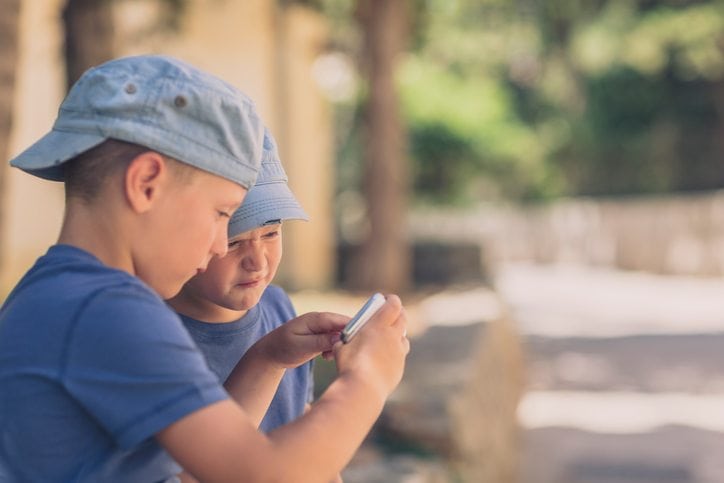Pokémon Go, the breakout smartphone game downloaded more than 15 million times in less than a week, has been praised as a charming health fad with its catch-me-if-you-can format. But an expert on video-game addiction cautions parents that too much Pokémon Go is potentially harmful to their children.
“Video games can cause a similar reaction in the pleasure centers of the brain as addictive drugs,” says Dr. Paul Weigle, a child and adolescent psychiatrist who is also associate medical director at Natchaug Hospital, “and addiction to game play causes similar long-term deficit in the brain’s reward system as those of drug addicts.”
Pokémon Go, a free game (iOS and Android devices), features a familiar Nintendo character concocted more than 25 years ago by a Japanese video-game designer with a childhood love of collecting insects.
Pokémon Go takes the game outside, with players attempting to catch Pokémon, or pocket monsters, in the real world. Niantic Labs, the game’s maker and spinoff of Google parent company Alphabet, uses augmented reality to make Pokeman trackable (and visible) through a smartphone’s GPS and back-facing camera.
Players have pursued Pokémon with such vigor that some have apparently lost their bearings and, perhaps, even their senses. The U.S. Holocaust Museum in Washington has already told Pokémon Go fans to refrain from playing while visiting the somber memorial.
“Pokémon Go motivates kids to go outside and explore the world,” says Weigle, “but this must be supervised as it comes with significant risks like distraction around traffic and ‘lures’ by other players.”
A 22-year-old Pokémon Go player chasing Pokémon at the unlikely hour of 1 a.m. in Forest Grove, Ore., spotted someone he thought was another player and asked, in the game’s parlance, if he wanted to battle. The person, as it turns out, was not a player and interpreted the invitation differently. He stabbed the Pokémon Go player.
Rather than go to a hospital, however, the player didn’t drop Pokémon Go until completing his mission. Only later he did seek medical treatment, requiring eight stitches in his shoulder.
Young, impulsive males with poor social skills are most vulnerable to video-game addiction, says Weigle.
“It can often lead to academic failure, social anxiety and depression,” he says.
Treating video-game addiction, says Weigle, is much like treatment of substance abuse with individual and family therapy.
Concerned parents who fear their child might have an unhealthy video-game habit should restrict the use of video games, allotting a specific amount of time (like two hours) a day.
“If a parent feels unable to so or that doing so would endanger the child or themselves,” says Weigle, “they should seek help from a certified counselor or psychiatrist.
For more information on our services, please visit Hartford HealthCare’s Behavioral Health Network website, or call 1.855.HHC.HERE (1.855.442.4373).

